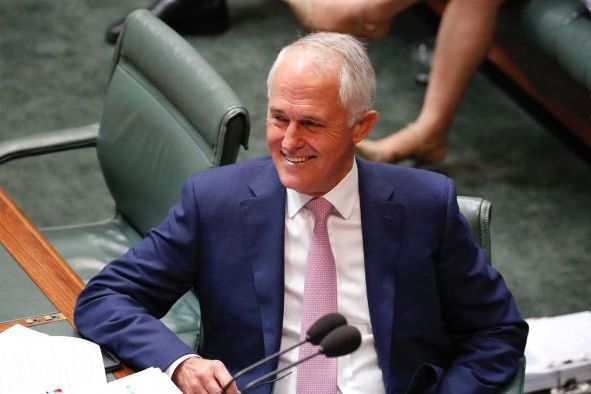
10 May Federal Budget 2017: Reset and rebrand
Federal Budget 2017
As expected in the lead up, this year’s Federal Budget was an attempt to bury the 2014 Budget and regain public trust and confidence. It largely ‘resets’ unpopular policies of the last few years that have not been able to pass through the Senate.
Whether this is traditional politician gymnastics, or genuinely trying to get on with running the country and putting an end to the bickering likely depends on your own political preferences.
Accru’s Daniel Arnephy outlines the key Federal Budget announcements below.
The 2017 Budget is widely considered a ‘reset’ for the Coalition and a re-branding exercise of sorts in the wake of last year’s marginal election victory.
Numerous policies from last year that did not resonate with voters and had not been able to pass through the Senate have been reset. The Government appears to have looked at what they couldn’t get through the Senate, cleared out $13 billion of cuts in ‘zombie’ measures that couldn’t pass, and changed direction with several initiatives and policies that theoretically the Labor party should struggle to oppose.
Labor’s initial spin was that the Liberals are trying to catch up but have fallen short in numerous areas. Voters will clearly need to decide for themselves over the next couple of years.
The key economic content of the budget was confirmation that the budget deficit is $29 billion, unemployment remains just below 6% and real economic growth is expected to be 2.75% for 2017/18. Unlike previous years, the Government fell short of promising a return to surplus on a set timeline, but still projected a return to surplus in 2020-2021. Anyone suffering strange deja vu can be forgiven, as post Budget coverage highlighted the fact that this is the sixth consecutive year in which a surplus was predicted on the fourth year of forward estimates.
The centrepiece of the budget was a housing affordability package, with changes to negative gearing being minor and other incentives being put in place for investors/developers to increase supply of affordable housing. Infrastructure spending plans of $70 billion are also significant and demonstrate the Government’s ‘responsible optimism’ on the economy and the opportunities it says we must take. However for the second year running, the Budget is essentially silent on the topic of climate change.
The taxation and super outcomes of this Budget are a mixed bag depending on who you are and what stage of life you’re at. None of the changes would count as proper tax reform, but it is a welcome relief that superannuation remains largely unchanged, save for some additional contribution measures. Whatever people think of the Medicare levy increase and big bank levy, at least they are relatively straight forward concepts for the public to debate and understand.
The most relevant tax and superannuation measures are covered below.
Companies & Businesses
+ Instant asset write off extension and CGT concessions changes for small business
+ Corporate tax rate update
+ Major bank levy introduced
+ Foreign skilled work levies
+ Taxable payments report and Multinational Anti-Avoidance Law changes.
+ Personal tax rate changes on lowest and highest brackets
+ Medicare levy and threshold increases
+ HELP changes
+ Additional salary sacrificing for first home buyers
+ Negative gearing changes
+ Increased CGT discount for affordable housing.
Superannuation & Pensions
+ Changes to measures relating to housing affordability:
+ Changes to limited recourse borrowing
+ Increased scrutiny of related party transactions
+ Greater non-concessional contributions for over 65s who sell their house
+ Pensioner Concession Card reinstated for some.
Housing Affordability
Although most of the housing affordability measures aren’t a direct tax and super concern for many people, the plan is a key part of the Budget and will affect many people and their families. Foreign investors are also targeted to make their investment costlier. As can be seen from the title of the initiatives, the policy intent is to put downward pressure on rising housing costs.
In addition to the measures discussed above, other housing affordability measures announced and listed in the Budget Papers are as follows:
Reducing Pressure on Housing Affordability
+ affordable housing through Managed Investment Trusts
+ annual charge on foreign owners of underutilised residential property
+ capital gains tax changes for foreign investors
+ contributing the proceeds of downsizing to superannuation
+ disallow the deduction of travel expenses for residential rental property
+ expanding tax incentives for investments in affordable housing
+ first home super saver scheme
+ limit plant and equipment depreciation deductions to outlays actually incurred by investors
+ restrict foreign ownership in new developments to no more than 50 per cent
+ a new National Housing and Homelessness Agreement
+ Social Impact Investments
+ support for the Homes for Homes Initiative
+ establishment of the National Housing Finance and Investment Corporation
+ National Housing Infrastructure Facility.



